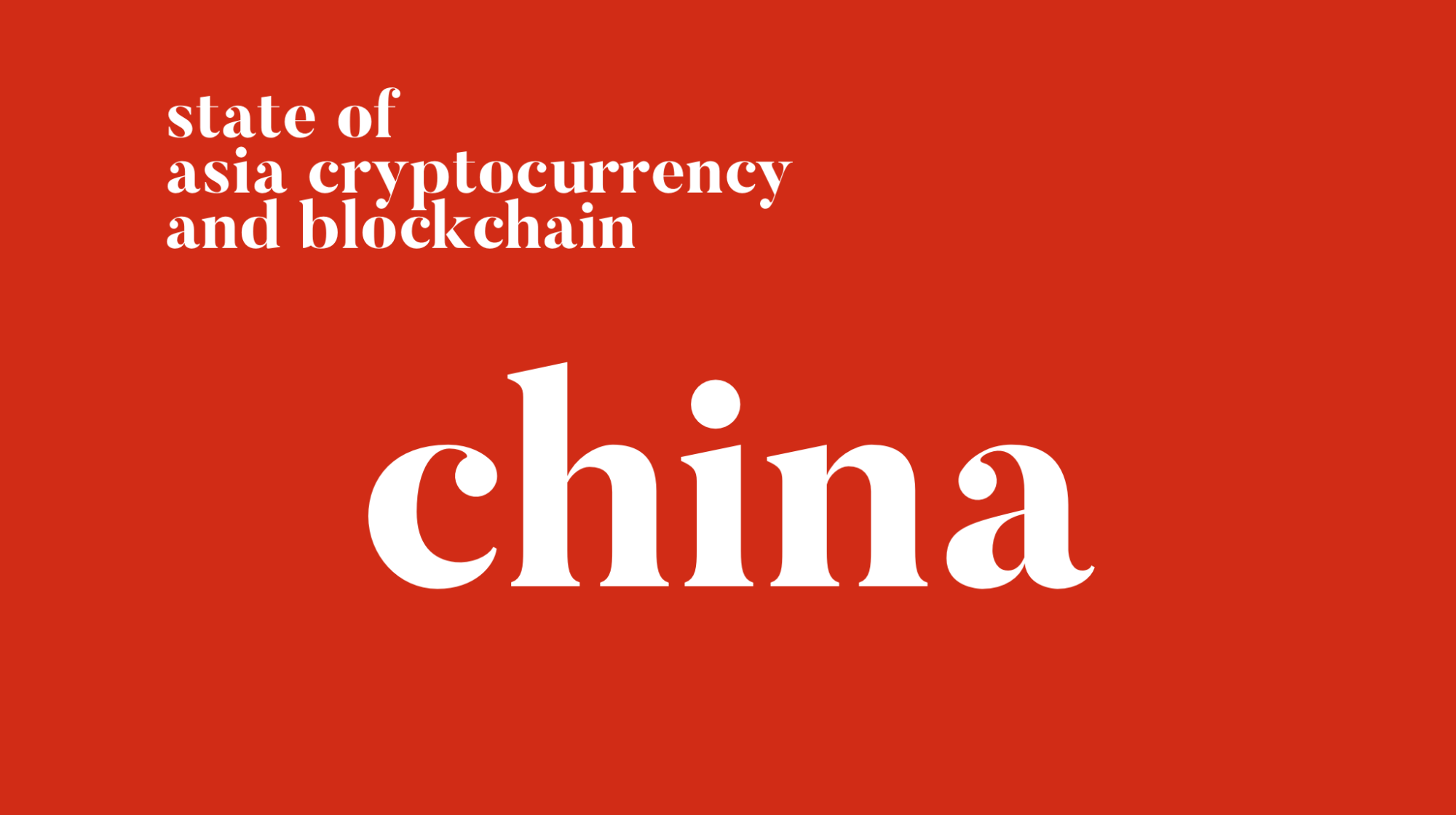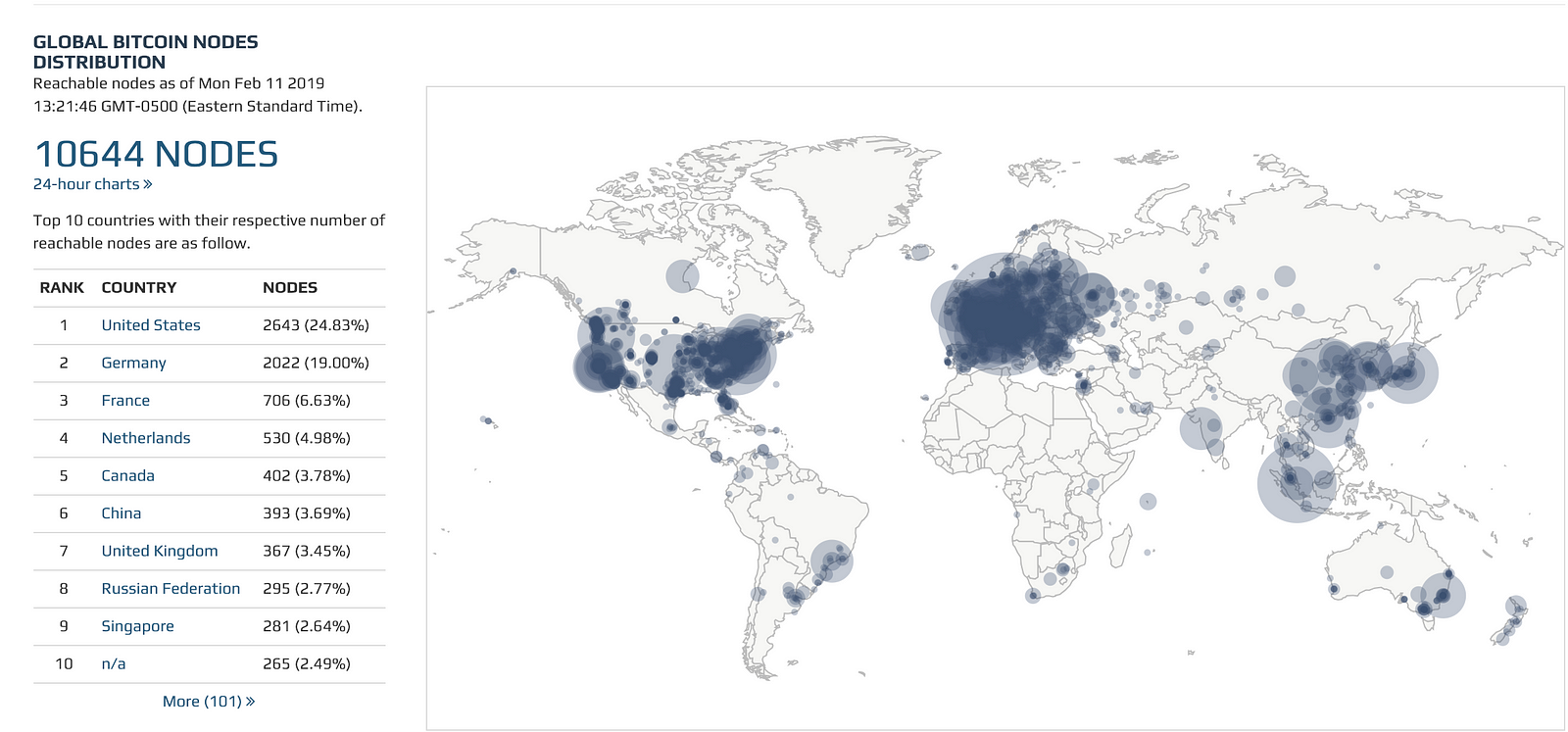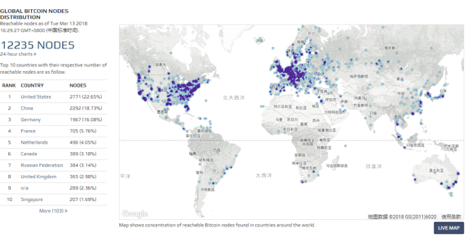State of China- February Edition

The Quick Take
Bitcoin nodes from China declined from 18% to 4% of the total nodes over the last year, and Huobi’s COO Jia Wei Zhu on how blockchain can empower China’s internet and financial ranking in the world.
Leo Weese, President of the HK Bitcoin Association talk about Chinese officials’ thoughts on Bitcoin, China’s parallel economy and capital control, and how China’s crypto regulations is an attempt for the regulators to control the narrative of crypto.
Bitcoin nodes from China declined from 18% to 4% of the total nodes over the last year
We are at the peak of Lunar New Year (most readers may not know that during the Chinese New Year period, there is a celebration almost every day with a different celebration or ritual) and all of China has been pretty quiet. In particular, partially driven by festivities, the number of Bitcoin full nodes in China has fallen from 421 to 382 in a single 24-hour window between 4th and 5th February. China now only accounts for only 3.97% of all nodes in the world vs. around 18% last year in March according to Bitnode data.

Bitcoin full nodes are essentially broadcast centers for the Bitcoin network. After a transaction is broadcasted to the network, Bitcoin miners will confirm the transaction and record it on the blockchain. Running full nodes will not be rewarded and Bitcoin transactions can be successfully completed without full nodes. But full nodes are still the backbone of the network. It’s remarkable how China dropped all the way from 2nd place last year to now 6th, from 2292 nodes to ~400 nodes, which equivalent to a drop of 14 percentage points. It is interesting to note that among the top 6 countries that are running full nodes, no other country saw more than 5 points of change during the same time. The ranking order in which each country are placed also did not change, except for China.

Huobi’s COO Jia Wei Zhu on how blockchain can empower China’s internet and financial ranking in the world
At the beginning of January, Huobi’s COOJia Wei Zhu gave a presentation (in Chinese) on the potential impact of blockchains at what appeared to be a blockchain conference. The presentation was pretty standard, but in one of the slides, Zhu mentioned that Huobi is having conversations with Chinese business executives on ways to use blockchain to move China forward. Here are his top 3 points:
- With blockchain, China can become the dominant force to set standards of the new internet, a privilege that was previously enjoyed by the US. Zhu argued that China has the most internet users, but web 2.0 did not come from China nor is it controlled by China. He hopes that China can support and dominate blockchain technology as the way to become the dominating country for the internet era.
- The power to set prices for crypto assets, which could be Bitcoin or another form of digital currency, could be in the hands of China. Zhu argued that historically, for example, China is a large consumer of gold, but gold prices are still dictated by the exchanges in the west from places like the US and the UK. He stresses that China should try to gain the right to dictate the prices of the dominating digital currency, and that US and Japan have already made advancements there. Zhu hopes the regulators in China to follow as well.
- With blockchain, Zhu believes that China can extend and globalize the adoption of the yuan, China’s fiat currency. He argues that China already has the most advanced mobile payments system in the world. While many countries are exploring digital versions of their fiat money, Chinese regulators are also exploring this concept in their research lab. With the globalization of the Yuan, Zhu believes that China then has the power to set global business standards.

These comments were particularly interesting to me. Despite a mutual understanding among the Chinese crypto circle, not many Chinese execs have spoken publicly and in detail about how blockchain can advance China’s position in the world, except maybe the Preside Xi Jinping himself. Out of the top exchanges, Huobi is one of the largest the exchanges closest to China, with its team recently even setting a set up a Communist Party committee at a Beijing-based subsidiary.
We are seeing some of Zhu’s ambitions starting to become realized, and it will likely start with China’s attempt to become a leading figure in web 3. According to a recent Wall Street Journal article titled The Internet, Divided Between the U.S. and China, Has Become a Battleground:
The two zones [China and US] are beginning to clash with the advent of the superfast new generation of mobile technology called 5G. China aims to be the biggest provider of gear underlying the networks, and along with that, it is pushing client countries to adopt its approach to the web?—?essentially urging some to use versions of the “Great Firewall” that Beijing uses to control its internet and contain the West’s influence.
Kaifu Lee, the former head of Google China takes it even further, claiming that “it will be China and countries that adopt Chinese apps, and countries that adopt American apps”. The next few years will become super interesting, as we see China and the US duke it out on the internet. Blockchains are certainly going to be involved.












